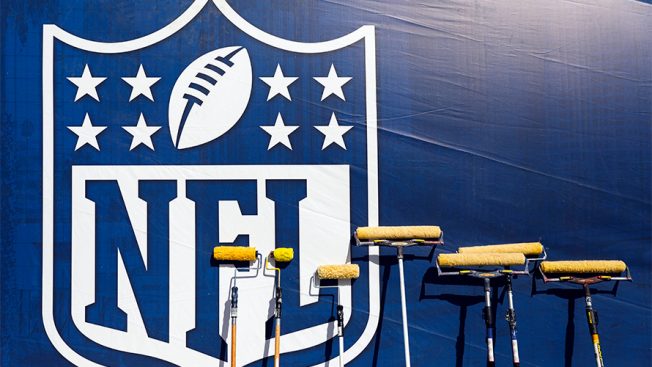Inspiration meets innovation at Brandweek, the ultimate marketing experience. Join industry luminaries, rising talent and strategic experts in Phoenix, Arizona this September 23–26 to assess challenges, develop solutions and create new pathways for growth. Register early to save.
With the NFL preseason starting up, some of us are debating whether football will continue as our country’s favorite sport. In May, the NFL officially came out against players’ national anthem protests, mandating fines for teams whose players kneel on the field. Only two months later, the league put a freeze on the policy.
The league presumably crafted its anthem policy without input from the players union to earn back fans after a two-year ratings slide and criticism from the president. Yet, I’d argue that the league realized its action will do little to endear the NFL to audiences.
Today’s consumers, especially younger audiences that represent the sport’s future, expect brands to stand for more than product and profit. Yes, even sports teams need values beyond winning. Here are four things we should learn from the NFL’s missteps.
Consumers have no tolerance for lip service
In January, the league announced an $89 million seven-year program to support social, education and criminal justice reform.
Here’s what commissioner Roger Goodell said about their “Let’s Listen Together” program. “We have taken the lead from our players and are honored to join them in this work. Their work has deepened the understanding of the unique platform we have to help advance progress in a profound and unifying way.”
Yet, the NFL’s anthem actions spoke louder than Goodell’s words only months later. Silencing players’ voices isn’t joining the work—it’s undoing it. In the throes of market pressure, January’s “Let’s Listen Together” became May’s “Let’s Put the Protest in the Bathroom.” Such a seismic shift between words and actions can unravel credibility. With its latest flip-flop, expect consumers to question the NFL’s authenticity.
Brands must make room for diverse voices
Business leaders need to tap diverse perspectives across race, culture and gender in their workforce or risk sounding tone deaf. The NFL is no exception.
Consider the following:
- Black people are three times more likely to get killed by police than white people.
- The NFL roster is made up of 70 percent black players.
- Of the 32 head coaches, eight were black in the 2017 season.
- Of the 32 team owners, zero were black.
Given these numbers and expectations for brands to advance societal change, the NFL’s long-term success hinges on their ability to elevate players’ perspectives, not subjugate it. Certainly not when the violence surfaced by the anthem protest disproportionately affects black American males, the demographic that represents 70 percent of the league’s roster. In suspending the punitive anthem policy, the league realized that silencing their employee base in today’s market is bad enough. In our conscious economy, silencing the historically oppressed is disqualifying.
Purpose requires the long game
It’s safe to assume the NFL analyzed consumer sentiment about the anthem protest. Most reports show a pretty even split. No data I saw showed the policy to be a business imperative, especially one so discordant with the brand purpose they had just announced. So how should the NFL have used market trends?
They shouldn’t. Brands who deliver social impact are playing the long game to retain employees, deepen brand affinity and drive revenue. The NFL’s management seemed to view their “Let’s Listen Together” program as a passion project for players, not a true organizational purpose and certainly not a revenue driver.
Instead of using the values behind “Let’s Listen Together” to guide their behavior, the NFL reacted to immediate threats like the ratings drop and the president’s disparaging tweets. Forward-thinking business leaders aren’t bandaging short-term injuries at the expense of long-term brand health.
Attempts to silence voices often amplify them
It was naive for the NFL to believe removing visibility of the protest would remove the problem. Dr. Martin Luther King, Jr., made this point in a letter from a Birmingham jail: “We who engage in nonviolent direct action are not the creators of tension. We merely bring to the surface the hidden tension that is already alive.”
That truth is as relevant today as it was in 1963. The NFL’s anthem policy would not have ended the controversy. Instead, the policy already amplified it. Players took to Twitter to re-up their commitment to the cause. And owners like the New York Jets’ Christopher Johnson said they’ll cover fines for players who continue to kneel. Even if players remained in the locker room, they’d be hidden from the stands but not from the press.
The NFL anthem saga shows the perils for brands navigating our purpose-driven economy without clear, inclusive values. That said, the NFL still has time to make good on its promise to “Listen Together” and to use the league’s influence to fight systemic racism in a way that builds their business. I hope the NFL finds its way back to its social purpose, by the dawn’s early light.








